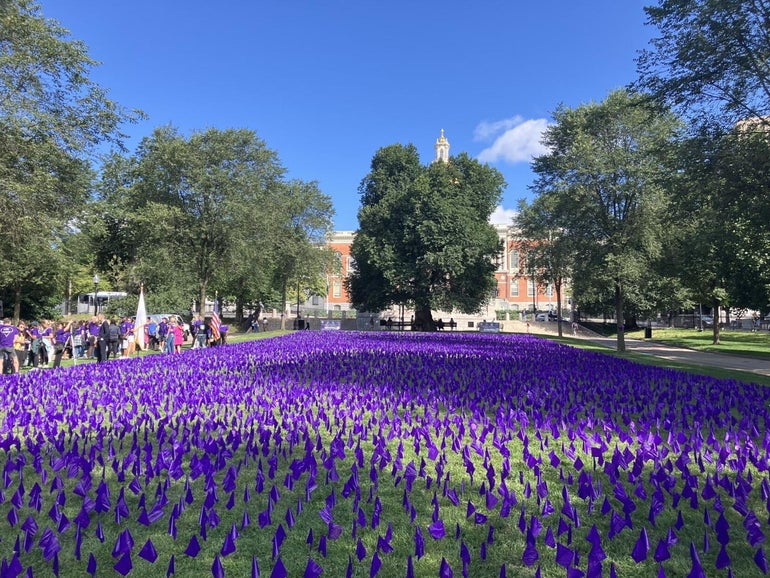Gov. Maura Healey has signed the addiction and substance use disorder bill that expands access to overdose reversal drugs, establishes licensure for recovery coaches, and limits legal liability for drug users and harm reduction workers who use drug-testing equipment.
Healey signed the bill Monday, her office announced Tuesday afternoon. Lawmakers shipped the bill to the governor’s desk Thursday, days after House and Senate conferees managed to strike a deal after months of private negotiations.
“This important legislation reflects an approach to substance use disorder that emphasizes recovery, compassion, and evidence-based care,” Public Health Commissioner Robbie Goldstein said. “The measures included in this bill will help break down barriers to care and push back against the stigma that hinders far too many from seeking effective treatment and moving toward recovery. Notably, this model of care affirms that the Commonwealth is committed to treating substance use disorder as a public health issue, not as a moral failing.”
Massachusetts has recorded more than 2,000 opioid-related overdose fatalities each year since 2016.
The compromise bill left out a controversial measure, embraced by the Senate and the Department of Public Health, that would have authorized municipalities to open supervised injection sites, where trained professionals can intervene if needed as people take pre-acquired, illegal drugs.
The law also requires insurers to cover overdose reversal drugs like naloxone, prohibits life insurance companies from limiting or refusing coverage to people just because they obtained an opioid antagonist for themselves or others, and overhauls child welfare laws for substance-exposed infants.
“This bill puts Massachusetts in the position to reduce overdoses, expand access to treatment and recovery services, and save lives,” Lt. Gov. Kim Driscoll said.

